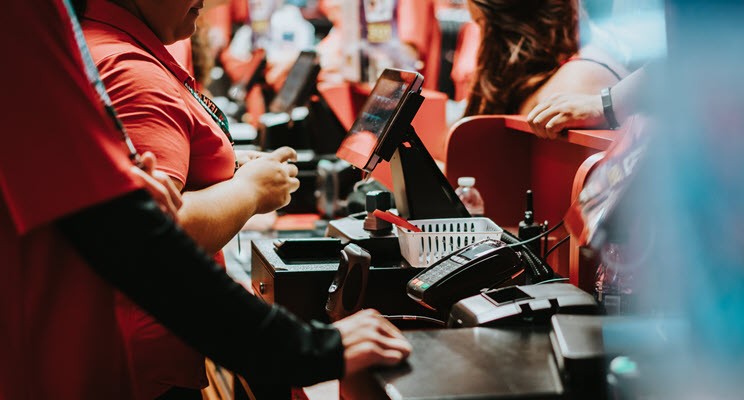April 7, 2021
Why Your POS System Should Be Powered by AndroidWhy Your POS System Should Be Powered by Android

When consumers take out their credit cards to make a purchase, they are demanding three things: speed, convenience, and, perhaps most importantly, security.
Speed — well, that’s always been true. But today’s consumers want an efficient point-of-sale system that gets them in and out as quickly as possible. As far as convenience goes, they increasingly expect contactless payment options, along with the tightest possible security.
To satisfy these consumer demands, the latest point-of-sale systems are experiencing huge demand. With a projected compound annual growth rate topping 9%, sales of POS terminals in across the globe are expected to hit a benchmark of $116 billion by 2026.
What features are retailers looking for in a POS system? As the payment process moves from a hardware-centered system to one based on software and services, companies want a cloud-based platform. There’s a high demand for contactless payment options, so they want NFC-enabled systems. And for security, EMV-compliant systems are a must-have for most companies.
Additionally, companies are looking for synergies among various methods of transactions such as eCommerce, self-order and checkout and a consistent user experience across them.
The question many companies are asking is which platform is best for point of sale. For a wide range of business uses, companies are increasingly turning to Android OS. A survey by the research firm IDC found that of 250 multinational corporations based in the U.S., 77% prefer Android.
When evaluating POS systems, you should take into account these key factors:
- Cost of the hardware. When you’re considering updating or replacing your current system, hardware costs are always among the main considerations. Because of the lower price point, using Android products helps reduce the overall cost of outfitting your business. And because of the wide range of products available, you don’t have to pay for more than you need.
- Cost of development. This is the other major cost you need to consider. A wide range of factors — including one of the largest developer ecosystems — mean that developing an Android-based POS system costs less in the long run. In addition to building your own system, you can easily leverage existing systems to keep under budget.
- Customer experience. Customers encounter your company across various platforms. It’s important that those who are familiar with your website feel at home when they encounter your in-person interface. Those who use your mobile app should intuitively know how to use your in-store kiosks. An Android-based POS system lets you build in that commonality across platforms. It provides a more interactive, fluid experience for customers.
- Ease of management. Android POS systems simplifying installation, connectivity, maintenance. and support. POS devices are specialized pieces of equipment built for a retail environment. They aren’t general-purpose computers, so why should businesses depend on general-purpose operating systems? Android is a fully customizable system that can meet the specific needs of any company.
Android may have started out as consumer-focused operating system, but companies like Elo have made it enterprise-ready by offering a range of devices, peripheral support, and security enhancements that are required for POS systems.
Elo offers some of the best Android products for enterprises, the first supplier of fixed devices to be certified with Google for Mobile Services (GMS). Its sleek, modular design provides companies the building blocks to configure the exact system they need, whether it’s either reinventing a retail experience with scan-and-go stations or self-serve checkout or updating dining with ordering kiosks or digital menu displays.
The Elo I–Series for Android is the perfect solution for POS. Available in three sizes, 10, 15 and 22-inches, its industry-leading projected capacitive touchscreen technology gives users tabletlike experiences in tough-as-nails devices built to withstand continuous use. And Elo provides a variety of mounting options, including a flip stand that allows staffers and customers to use devices in turn. This is why 65% of professional sports stadiums in the U.S. are running I-Series and Android as their point-of-sale solution.
Elo also offers barcode scanners and other integrated peripherals to round out the POS experience. Need to integrate those NFC and EMV capabilities customers are demanding? Elo makes it easy with cradles for payment-ready devices.
In today’s mobile world, you’ve already invested in Android development. Simplify and secure your point-of-sale using Android OS.